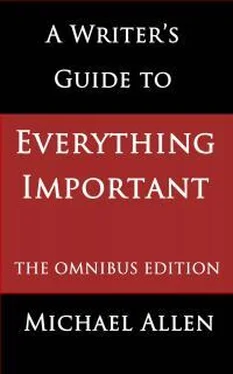Another point worth making here is that agents are essentially salesmen. And sales are confirmed in written contracts. So to strike the best deal for a writer, an agent needs to have at least a passing familiarity with the drafting of contracts as they pertain to book publishing, movie rights, subsidiary rights, foreign rights, audio rights, and so forth.
As the years have gone by, publishers’ contracts have become ever more complicated and, yes, devious. Here is David Vandagriff, a US media lawyer (now retired) speaking about book contracts:
‘After having reviewed many, many agreements and proposed agreements between traditional publishers and authors, [I am] prepared to say these contracts, as a group, stand apart from the general run of business agreements as conscience-shocking monstrosities. They’re simply designed to screw authors and to give publishers control over their work that is far beyond what is regarded as reasonable in the rest of American business.’ (The UK is no different, by the way.)
So, that is the situation that agents have to deal with. They need to understand the dangers which are present in any modern contract with a book publisher; and, in my opinion, they have a duty to protect their clients against signing a contract which will actually cost them money through lost royalties and other valuable rights.
It is possible, of course, for an agent to argue that such is not his responsibility at all – that every writer is a big boy or girl, and that they should learn to understand contracts all on their own. This latter approach is actually something that I tried to adopt myself. For years I ran a self-instruction course in English law as it applies to the media, particularly publishing.
One useful book to read, if you’re thinking of doing the same, and if you live in the UK, is Clark’s Publishing Agreements by Lynette Owen. The ninth edition was published on 9 December 2013, and it will cost you £130. Which is undeniably expensive. But it could save you a much larger sum if it enables you to question a dodgy clause.
About 25 years ago, I was interested in adapting a fairly well known novel as a television series. My agent and I agreed that the best way forward was for me to buy an option on the TV rights before pitching the idea to any producers. In that way I could control the operation, whereas if I pitched the idea to a producer without having an option on the rights, the producer could just pick up the idea, leave me out of it, and commission her son-in-law to write the thing instead.
So, I was discussing with my agent the form that this option contract should take.
‘If it was up to me,’ I said, ‘I would just use the model contract for an option in Clark’s Publishing Agreements. ’
It turned out that the agent had never heard of the book, despite the fact that it has been the standard text on the subject for several decades.
At least one US copyright lawyer (C.E. Petit) believes that, while agents are not lawyers, they are engaged in the practice of law. This is one reason, he argues, why literary agents should be regulated and licensed – which they are not. In many jurisdictions this distinguishes them from, for instance, agents in insurance and real estate. California, home of the movie industry, has laws governing ‘talent agents’, but says nothing about the literary kind.
Nowadays, as we shall see, the formal relationship between an agent and his clients is likely to be governed by a formal written agreement; this document is drafted by the agent and his lawyer. The terms of it are not determined by the writer, thus endorsing my point that the agent is, in practice the principle.
That being the case, you should not be surprised to hear that modern agent-writer agreements are seldom advantageous to the writer. The days when two gentlemen could just shake hands on an agreement are long since over.
2.3 The gentlemen retire
Sterling Lord, mentioned above, reminds us that, from about 1960 on, publishing underwent a change (and it was not to be the last). It all became a lot less gentlemanly and a lot more money-orientated.
The people who founded publishing businesses in the early part of the twentieth century had often been very literary fellows (they were nearly all men), and the firms often bore the names of their founders (Victor Gollancz; Farrar, Straus & Giroux). But now the income-generating power of paperbacks began to be obvious, and the publishing business began to attract a different sort of person.
In the second half of the twentieth century, publishing was characterised by a constant stream of mergers. Big companies bought little companies – sometimes by the dozen. Some of the bigger firms then went public, i.e. their shares were traded on various stock exchanges. And when that happened, the money men threw out all the well-read guys and substituted hard-nosed businessmen in their place.
By 1990, the formerly genteel Random House was now being run by a former banker named Alberto Vitale. He was a man who boasted to all and sundry that he was far too busy ever to read a book. In 1990, Vitale decided that he wanted to get rid of Andre Schiffrin, a long-standing and much admired head of a Random House literary division. To achieve this, Vitale simply ‘rearranged’ some Random House costs, charging Schiffrin’s division for expenses which had actually been incurred elsewhere. Schiffrin’s backlist of books, potentially a great asset, was written off at zero value. Result: Schiffrin was identified as a hopeless loser of the firm’s money. He was kicked out.
As far as the agents were concerned, a much tougher breed of operator now made an appearance. Swifty Lazar, with whom we began this book, was clearly not a gentleman. He was a ruthless, hard-nosed bastard.
One of Swifty’s techniques was to offer a deal to a publisher which involved a Hollywood star or a famous politician as the ‘author’ of a book (which would, in due course, be ghosted). He would do this without bothering to ask the star or the politician if he was interested. Only later, when Swifty had a substantial deal agreed in principle, would he approach the big name in question, and suggest that this individual should become his client. If there was enough money dangled, he was seldom refused.
Swifty used this technique was in relation to Henry Kissinger. In that deal, Simon & Schuster were so keen to publish the proposed book that they agreed to pay two commissions, Swifty’s and a commission to Kissinger’s regular agent, to keep them happy.
Another ungentlemanly feature which began to emerge in the 1980s and ’90s was the practice of poaching clients. In the old days, agent A would never have dreamed of going to a writer who was already represented by agent B, and whispering in his ear about how much more money he would make if he shifted his allegiance. It simply wasn’t done. Now it began to be done in a fairly shameless manner.
The most famous poacher was, and is, the Harvard-educated Andrew Wylie. Craig Wylie, Andrew’s father, was at one time editor-in-chief at Houghton Mifflin, so Andrew grew up with books; and presumably he was taught how gentlemen are expected to behave. However, all you need to know now is that, for a good many years, Andrew Wylie has been known in the business as the Jackal.
Wylie’s most publicised poach was that of the English writer, Martin Amis. For 22 years Amis had been represented by the English agent Pat Kavanagh. But the Jackal got his teeth into him and lured him away. This upset a great many people in London literary circles, not least the writer Julian Barnes, who had thought himself a close friend of Amis, and who was also married to Pat Kavanagh.
Such is the power of a £500,000 contract, which is what Wylie negotiated for Amis. (About £495,000 more than Amis was worth, in my opinion.)
Читать дальше












